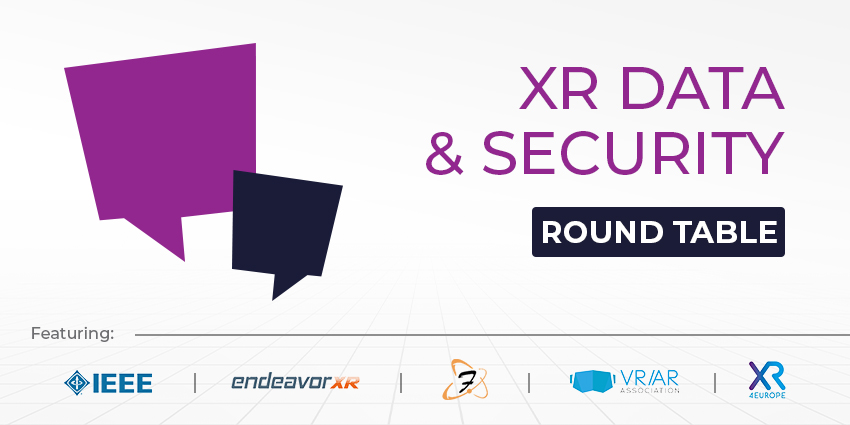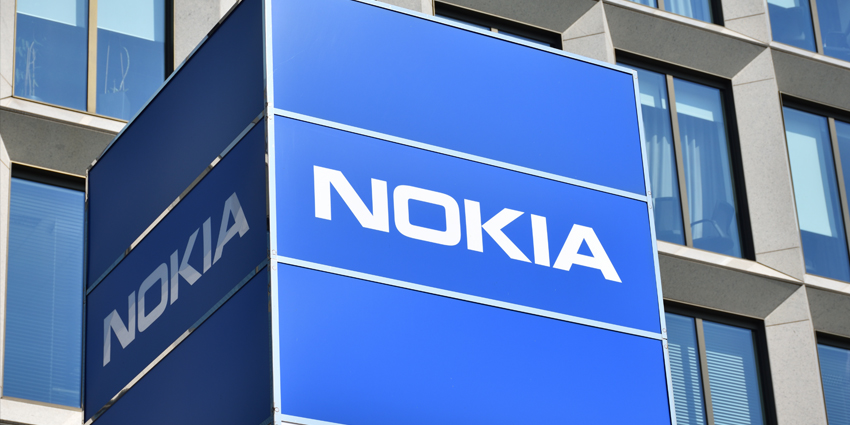XR technologies provide significant advantages for companies, enhancing productivity, collaboration, efficiency, and customer service. However, as the adoption of these technologies increases, so do concerns regarding XR data governance and security.
XR solutions, software, and hardware rely on large volumes of highly sensitive data, from environmental to user data. Without proper protections, companies risk falling victim to hackers, malicious actors, and criminals and even facing regulatory fines.
To mitigate these risks, companies can implement various XR security solutions. These range from devices designed with privacy and safety in mind to intelligent systems for identity access management and endpoint control.
Several types of XR devices exist, each with unique risks. For example, augmented and mixed-reality headsets use sensors and spatial solutions to collect extensive amounts of personal and environmental data.
For many organizations, navigating the world of XR data management, privacy, and security can feel daunting. While this environment does present new threats—especially concerning ethics and personal data privacy—it also faces many common risks. As data privacy and security regulations evolve and XR devices become more advanced, many vendors are developing innovative solutions to address these challenges.
During this month’s Big XR News Show, five panellists spoke on current business considerations for AR/VR/MR data and security. Joining the roundtable is:
- Kevin ‘O Donovan, Co-Chair, Industrial Metaverse & Digital Twin Committee, VRARA
- Jay Latta, Founder and Speaker, The Fusionists
- Amy Peck, Founder and CEO, EndeavorXR
- Letitia Bochud, Director, Virtual Switzerland and Chair of the Board of Directors, XR4Europe
- Jennifer Rogers, Executive Officer, Learning Technology Standards Committee at the IEEE
Defining AR/VR/MR Data
Peck
Until we have day-to-day utility with these devices in whatever format they are, they’ll still be very specialized. VR is very much an environment; it’s purpose-built for something specific, such as meetings, training, or entertainment.
Whereas AR, mixed reality, and spatial computing will eventually be what the Internet was for us, except instead of logging in somewhere and seeing on a 2D screen, in theory, all of this data will live all around us.
We don’t discuss this new level of computing with AI and all the data. I believe we’re also in self-sovereign data. But where is that going to live? Who’s going to pay for it? Who’s going to manage it?
I think we have to start appealing to consumers in a way that’s meaningful to them because when I have conversations when I’m outside of the bubble of all the tech people, nobody cares. They’re not waiting for a suitable device.
It’s got to be the iPhone moment. It’s got to be the BlackBerry moment, where someone presents something so compelling that we put down the thing we used to use and pick it up. We need to start thinking about what that looks like, not in theoretical terms.
O’Donnovan
I like my history. We’ve had the BlackBerry moment, the Apple iPhone moment, and the VHS video recorder moment.
There was no group of people who stood around and said, “Which is the best one? This is going to be the winner.” It was a free market, and consumers spoke.
I do not believe that some of the industry’s going to come together somewhere in the dark room and say, “Well, here’s the answer for the device of the future.” We’ll see all sorts of things, and then suddenly, someone will break through, and they’ll sell lots of it. And like I always say, what becomes the standard is whoever sells the most.
Enabling Cross-Device Communication
Rogers
If we look at the ways in which all of these communicate with one another, we do have a background of quite a few standards that have enabled that. Whether that was TCP, IP or Wi-Fi, this goes back to Amy’s point, whereby we’re focused on the experience and what it is, from a data perspective, that we’re putting in someone’s field of vision in the course of their day, at any given point, to help them with whatever it is they’re trying to accomplish that does require an acknowledgement that that person is the same person regardless of their whether they’re in their personal life, whether they’re in their work life regardless of where they are at any given moment, and what device they’re on.
That requires us to agree on how all of this works together and communicates with one another. If we don’t get that part right, we’ll be running a race to the end, and we’ll end up with a whole bunch of different ecosystems that don’t work together.
Bochud
Microsoft already has the gaming power and gaming data, so that’s been overlooked. But they have the community, but will they be allowed to merge this data?
Data Ownership
Rogers
There’s the concept of ownership. A few weeks back, I was sitting with a large group of energy companies talking about how to create an ecosystem, acknowledging that we have a value chain that consists of different parts of the ecosystem and different companies that have to work together.
How do we negotiate data ownership? What does that look like, and how do we deal with that in a complex environment where different vendors are part of these solutions? Who owns the data, who’s trying to commoditize it, and for what purpose?
Cultural Considerations
Latta
There are cultural issues with staff. The US has a completely different expectation of data for the greater good, and so on. Then there are Germany, France, Switzerland, and the UK.
So, what you might invent or define as a standard might not be accepted by the European Union because it was not invented here.
If you want to have a breakthrough, it needs to be easy, logical, and transparent.
Bochud
At the end of September, there was the Summit of the Future, the first ever held at the United Nations, and there were many talks about AI and big data, all the data collecting. This is one of the most massive workloads for the UN, which involves watching the world, knowing what to observe, and gathering data between governments, civil society, and research institutions.
So, I’m working with the UN currently, and I see this as an opportunity for them to get together around this data for a good society, but that requires them first to be able to work together, which is not a given.
Data for Good and Maximizing Value
Rogers
I always talk about the ways in which we can maximize value for everyone because we’re talking about data for the greater good and how we all can maximize value. I think we’re in a winning space now. The interesting thing about that is that it requires a tremendous amount of creativity to get to the point where we create the standards and agree upon them or get into regulation. I think those are the pieces that we all need to negotiate together and understand.
O’Donnovan
I think for XR to go to the masses, we need to use cases that people understand. The technology, they don’t care, but it brings usefulness and functionality they will. How that will play out is they’ll be different hardware, different use cases, different software. There’ll be different data used. I don’t see anybody being able to come up with the magic stack of where data goes.
I think the best example I’ve seen of using data for the greater good is sharing methane emissions worldwide and making them public. Nobody can hide. It’s not company data; it’s publicly available satellite data. So, those kinds of things.
But it depends on the data. It depends on the industry. Geopolitics comes in, and people go, oh well, it might be for the greater good. But we’re not doing it. That’s going to play out for decades, centuries, millennia. I don’t think we have to fix the data issues in the world to get XR to the masses.
It’s two different things, though they’re highly related. But if I want to share data in my business around XR for training, asset management, or whatever, it’s a very different discussion from discussing health data and public data.
Trust in Data Usage
Rogers
The word that keeps coming back to me over and over again is trust. There’s the aspect of trust around the different parts of the ecosystem working together. There are aspects of trust around what data is captured and in what format. But at the end of the day, once again, if we can all come together and determine what some of the standards are behind all of this and the ways in which we can work together, we can establish that trust.
When I look to XR and where we go in the future, as we start to make some of those decisions and agree on the path forward, those standards do bring about. I’m hopeful that we’ll get there in the end. It comes down to having the right discussions like we’ve had today.







